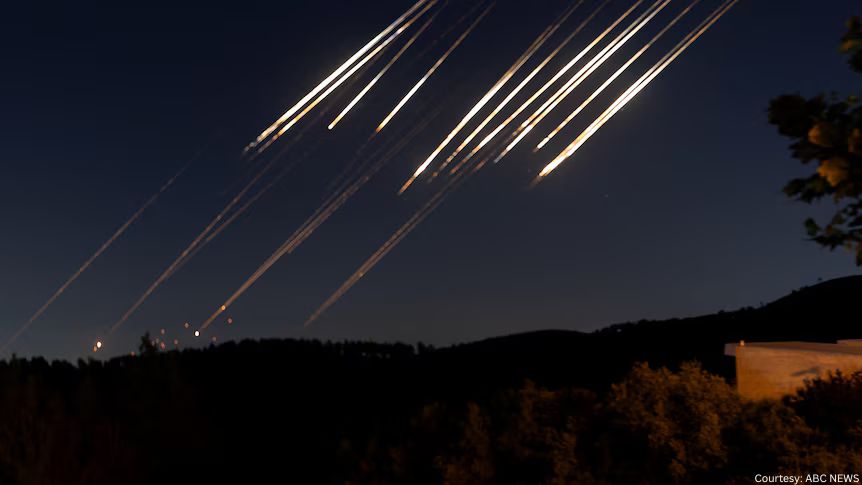Israel-Iran Conflict Escalates on Sixth Day with Fresh Missile Strikes
ISLAMABAD – The rapidly intensifying conflict between Israel and Iran entered its sixth day on Wednesday, with both sides launching renewed missile strikes that have raised fears of a broader regional war and triggered urgent calls for international de-escalation.
Iran launched a series of ballistic missiles and suicide drones toward Israeli targets in the early hours of the morning, including several hypersonic Fattah-1 projectiles that targeted Tel Aviv and Haifa. The Israeli military reported successful interceptions through its Iron Dome and David’s Sling defense systems, but confirmed civilian casualties and infrastructure damage.
In swift retaliation, Israel conducted a new wave of airstrikes on Iranian military assets, with explosions reported in Tehran’s District 18 and surrounding areas. Iranian authorities ordered partial evacuations in affected zones, as state media acknowledged strikes on missile storage depots and communication infrastructure.
Rising Death Toll and Civilian Displacement
Independent human rights observers report that Israeli strikes since the beginning of the conflict have killed at least 585 people in Iran, including several top-ranking officers of the Islamic Revolutionary Guard Corps (IRGC). Iranian authorities have confirmed over 224 deaths and more than 1,300 injuries, though analysts warn the real toll may be higher.
On the Israeli side, more than 24 people have been confirmed dead since the onset of hostilities, with dozens more injured in cities hit by missile attacks.
Hundreds of thousands of Iranians have fled high-risk zones in Tehran amid continued aerial bombardment and concerns over further strikes on sensitive nuclear infrastructure. The International Atomic Energy Agency (IAEA) has confirmed that parts of Iran’s Natanz nuclear site have sustained “serious damage.”
Trump Enters the Fray
Former U.S. President Donald Trump made headlines by issuing a stark warning to Iran, calling for its “unconditional surrender” and suggesting that the United States could target the country’s leadership “if provoked further.” While the Biden administration has not formally joined the offensive, U.S. forces have intercepted missiles aimed at Israel and bolstered air defense systems across allied Gulf states.
Pentagon sources indicate the deployment of additional carrier strike groups to the Persian Gulf, a move seen by analysts as a signal of readiness should the conflict widen.
Global Reaction and Regional Impact
The international community has reacted with concern. The United Nations Security Council convened in emergency session late Tuesday but failed to pass a resolution amid sharp divisions between Western powers and Russia-China bloc. Pakistan’s Foreign Office issued a statement urging both nations to exercise “maximum restraint” and warned against any further targeting of civilian populations.
Oil prices have surged amid fears of disruption in the Strait of Hormuz, a vital global shipping lane, and energy analysts predict continued volatility in global markets if the crisis persists.
A New Chapter in Middle East Tensions
This marks the most direct military confrontation between Iran and Israel in modern history. Unlike previous shadow wars and proxy engagements, both states have now engaged in open conflict, targeting each other’s military-industrial infrastructure, major cities, and strategic assets.
As of Wednesday afternoon, air raid sirens continued to wail across central Israel and southern Iran. With no formal ceasefire talks underway, analysts warn that the next 48 hours could prove decisive.


